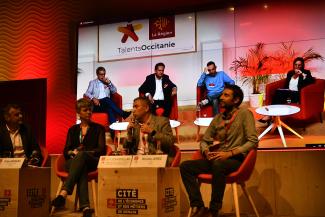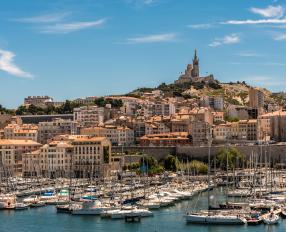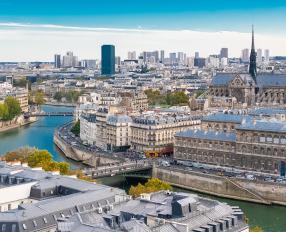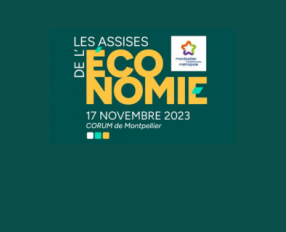Illustration : Région Occitanie
[Official Occitanie Region press release]
Talent hunting decoded in Toulouse and Montpellier
"Catch me if you can", or "How to recruit talent in Occitanie": this was the theme of the sequence organized by the Occitanie Region, on October 16 in Toulouse (La Cité) and Montpellier (La Cité de l'Economie et des Métiers de Demain). A number of companies from the Occitan region shared their insights and best practices for "getting people to come" and "getting people to stay". Here's a look back at some of the high impact exchanges that summarized the major challenges of attracting and retaining talent, and the expectations of the new generations.
From a large fossil fuel group to a cleantech company
Bulane (Fabrègues), an industrial start-up pioneering the use of hydrogen electrolyzers to create high-temperature flames without gas cylinders, has succeeded in attracting profiles from"major fossil fuel groups" who want to join a cleantech company. They accept to review their salary positions, knowing that they are going to take action, have an impact, add value and be part of a success story", he analyzes. One of the expectations of the new generation: "To have a vision of the company's strategy. This requires a great deal of internal communication. Especially as we're an innovative company in a complex market, with new markets coming on stream. We mustn't give the team the impression that we're going off in all directions. We communicate on the structure of our growth and the applications we're targeting. It's important to get talented people on board. That'sthe first key factor in the sustainability of a company-employee relationship. This strong commitment is also reflected in the involvement of employees in the recruitment process. "We build the recruitment process together.There isn't an HR department that recruits, and then presents the decisions behind it," explains Nicolas Jérez.
Annualized part-time work
Biotope, an ecological engineering consultancy based in Mèze (34), has introduced an annualized part-time arrangement (100% for 10 months, plus two months' vacation). "This option is increasingly popular. It allows employees to go on a long trip, while remaining employed. With us, this flexibility is now possible", explains Céline Ménard, Biotope's Regional Manager for the South of France. Another special feature of Biotope is the establishment of an"extreme conditions bonus, for naturalists who spend two weeks deep in the Amazon rainforest, in Guinea or Gabon, or in Morocco or Madagascar". In Guinea, for example, Biotope is supporting a major rail project to connect a mining center. Environmental studies focus on biodiversity and the people living in these areas.
Foragers, or employee-consumers
Céline Ménard observes that"some young people are foragers, helping themselves and then leaving. They use all the advantages a company has to offer, and are more consumers than players. But you have to play the game. Out of 10 work-study students, 3 are foragers.We'rebound to come across them again: future customers, partners, colleagues...".
Employer branding, a major asset for companies
Frédéric Melki, co-founder of Biotope in 1993, is working on his group's employer brand. This year, for the ETI's 30th anniversary, he created a competition for the best naturalist in France, with a national prize-giving ceremony in Paris in December. Several years ago, he launched the "Promotion des Ambitieux", which supports employees in their personal projects, sometimes up to and including business creation. "It's a great way of breaking down territorial organization, allowing employees to cross-fertilize their cultures, their desires and their vision of the company," explains Céline Ménard. Promotion can also suggest changes to processes or the creation of new services. In purely HR terms, it can also bring out "new managers, people we didn't necessarily see before. We need to cross-fertilize ideas, create breathing space, because we're multi-site".
Numerous ideas emerged during the round-table discussion, with a genuine desire to understand the new challenges facing the region's economic players and driving forces. Regional councillor Patrice Canayer, manager and coach of the MHB (Montpellier Handball) until June 2024, delivered an important key in how to define talent. "In handball, a talent must have at least two strong points. Not one, but two. It can be physical, technical, psychological... You have to work hard on these two strong points, without trying too hard to rectify the weak ones", he confides. At the microphone, he insists on the favorable environment to be created. "If you bring in researchers from foreign countries, the first thing they'll look for is an international school for their children, the proximity of high-performance health facilities, the availability of transport...".

Our readers are also interested by

Lancement officiel de la nouvelle feuille de route de l'agence de marketing territorial One Provence

Choose Paris Region - La Région Ile-de-France regroupe ses activités d'attractivité et de tourisme





